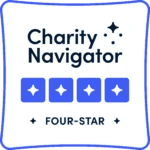Emerging from the Shadows: U.S. Action on Child Sexual Exploitation and Abuse
In a nation where liberty and justice are core ideals, the United States confronts a devastating reality: the extensive and often covert crisis of child sexual exploitation and abuse (CSEA). The recent figures released by the Centers for Disease Control and Prevention are sobering and require immediate and decisive action.With one in four girls and one in 20 boys facing sexual abuse during childhood, and with child protective services reporting a case every nine minutes, the need for a collective and effective strategy is undeniable.
The fiscal toll is as staggering as the emotional one—the United States may bear a cost upwards of $9.3 billion annually due to nonfatal child sexual abuse. But beyond economics lies a moral imperative, one that demands urgency to counter this devastation upon our nation’s future.
The Economist Impact’s Out of the Shadows Index, with the support of the World Childhood Foundation USA, evaluates the current reality of state efforts to grapple with this multifaceted issue. Assessing over 170 metrics, the index scrutinizes state measures to thwart CSEA, providing a critical tool for policymakers, advocates, and practitioners aiming to identify shortcomings and measure progress.
The findings are a mix of concern and promise. A widespread lack of comprehensive prevention strategies underscores a nationwide deficiency. Not one of the 28 evaluated states has made much progress on defense against online child sexual abuse or developed programs to address the precursors of abuse.
Wealth does not correlate with success; affluent states like Massachusetts and New York do not lead the charge against CSEA. Conversely, states with leaner budgets often surpass the national average in preventative and responsive action, revealing that commitment, rather than capital, is the catalyst for change.

The index sheds light on a noteworthy trend: states with more female legislators are pioneering stronger CSEA prevention and response mechanisms. Such a correlation underscores the importance of diverse representation in lawmaking bodies, advocating for the vulnerable and orchestrating systemic change.
Our children’s education in sexuality and reproductive health remains deficient, failing to arm them with the necessary knowledge to navigate the complexities of their development safely. With only one state meeting the standard for comprehensive, inclusive, and medically accurate sex education, the imperative for reform is clear.
Crucial actors in the field—teachers, daycare employees, child protective services investigators, law enforcement officers, and prosecutors—often lack the requisite training to identify and prevent CSEA, and to offer a trauma-informed response when abuse occurs. This gap in preparedness must be bridged to secure the welfare of our children.
Children’s Advocacy Centers (CACs) stand as a beacon of hope in this grim landscape, yet they too grapple with inadequate funding, which hampers their capacity to deliver essential services. Despite these hurdles, their unwavering commitment to the cause ensures that the journey from the shadows to safety continues for many young survivors.
The Out of the Shadows Index not only quantifies the state of our nation’s efforts but also qualifies our collective will to protect our children. It’s a disturbing narrative demanding that we fortify our defenses against the affliction of CSEA, urging every stakeholder to play their part in healing, safeguarding, and nurturing the innocent.
Let this be a call to action, one that resonates through every layer of society, energizing a united front to secure the fundamental rights and freedoms of every child. As we harness the power of awareness, advocacy, and education, we renew our commitment to guiding our nation’s youth out of the shadows and into the light of hope and healing.
By Jessica Munoz
Founder, Hoʻōla Nā Pua and Pearl Haven


